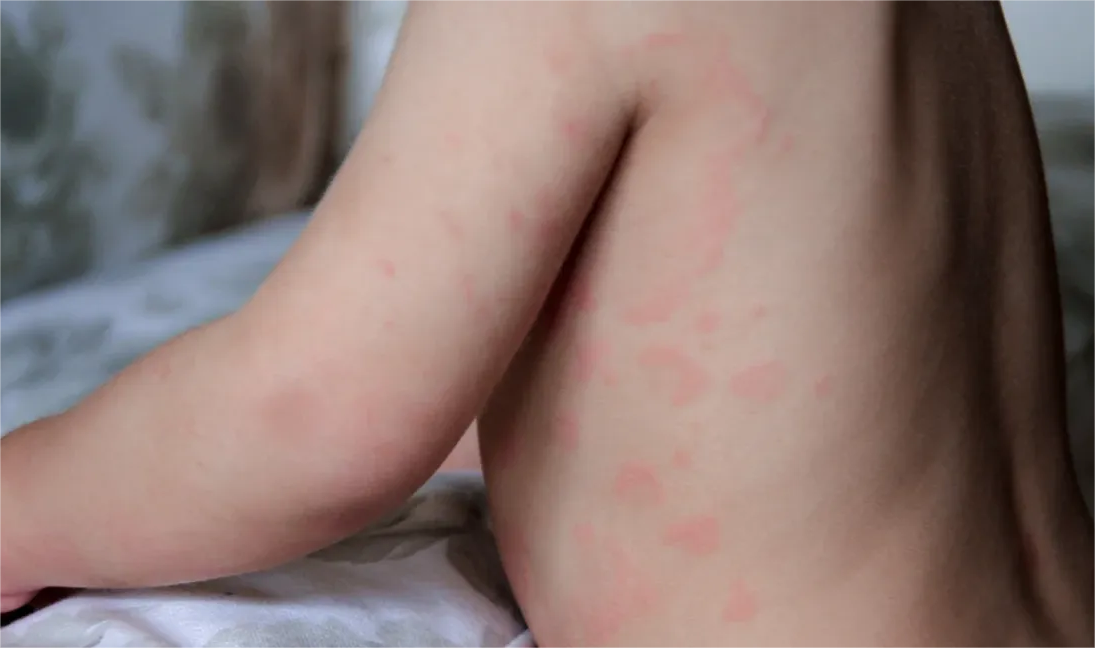Sunlight is often celebrated for its myriad health benefits, from providing essential vitamin D to uplifting moods. However, for some individuals, exposure to the sun can trigger an unexpected and uncomfortable reaction: hives. Hives, medically known as urticaria, are characterized by raised, itchy welts on the skin. While the association between sunlight and hives may seem perplexing, a deeper exploration reveals the intricate interplay of biological mechanisms and environmental factors that underlie this phenomenon.
Understanding Hives:
Before delving into the specific triggers of sun-induced hives, it is crucial to grasp the fundamentals of hives themselves. Hives are a manifestation of the body’s immune response, typically triggered by the release of histamine and other inflammatory substances. This release leads to the dilation of blood vessels and the leakage of fluid into the surrounding tissues, resulting in the characteristic raised welts and itching sensation.
Hives can be acute, lasting for a few hours to several days, or chronic, persisting for six weeks or longer. While the exact cause of hives can be challenging to pinpoint, common triggers include allergens, certain medications, infections, and environmental factors. Understanding the triggers is essential for effective management and prevention of hives, particularly those induced by sunlight.
Solar Urticaria: Unraveling the Mystery:
Solar urticaria, a specific form of hives triggered by exposure to sunlight, presents a unique challenge for both patients and healthcare providers. This condition typically manifests as hives, itching, and stinging within minutes of sun exposure, often in areas of the skin exposed to sunlight. The exact cause of solar urticaria remains elusive, but several theories have emerged to explain its mechanisms.
1. Phototoxicity:
One leading theory implicates phototoxicity, a phenomenon where certain substances in the skin become activated by sunlight, leading to an exaggerated immune response. Common culprits include medications, fragrances, and chemicals found in skincare products. Upon exposure to sunlight, these substances undergo a photochemical reaction, triggering the release of inflammatory mediators and culminating in the development of hives.
2. Immunological Response:
Another hypothesis suggests an aberrant immunological response to sunlight as the underlying cause of solar urticaria. Sunlight contains a broad spectrum of wavelengths, including ultraviolet (UV) radiation, which can modulate the immune system. It is postulated that in individuals predisposed to solar urticaria, exposure to specific wavelengths of sunlight may trigger an autoimmune reaction, leading to the development of hives.
3. Heat and Sweat:
Additionally, the heat and sweat associated with sun exposure may exacerbate hives in susceptible individuals. Increased temperature and humidity can promote the release of histamine and other inflammatory substances, amplifying the allergic response and worsening symptoms. Furthermore, sweat itself can act as an irritant, triggering hives in individuals with sensitive skin.
Risk Factors and Prevention Strategies:
Several factors can increase the likelihood of developing hives from sun exposure. Fair-skinned individuals, those with a history of allergies or autoimmune disorders, and individuals taking photosensitizing medications are at heightened risk. Moreover, certain environmental conditions, such as high temperatures and humidity, can exacerbate symptoms.
Prevention is key in managing solar urticaria and reducing the frequency and severity of outbreaks. Strategies include:
1. Sun Protection: Wearing protective clothing, such as long-sleeved shirts and wide-brimmed hats, can shield the skin from direct sunlight.
2. Sunscreen: Applying broad-spectrum sunscreen with a high sun protection factor (SPF) can help prevent UV-induced skin damage and reduce the risk of hives.
3. Avoidance of Triggers: Identifying and avoiding known triggers, such as certain medications or skincare products, is essential in managing solar urticaria.
4. Time and Intensity of Sun Exposure: Limiting outdoor activities during peak sunlight hours and seeking shade when possible can minimize exposure to triggering wavelengths of sunlight.
Conclusion:
While hives from sun exposure may pose a perplexing challenge, a comprehensive understanding of the underlying mechanisms and risk factors is crucial for effective management and prevention. By elucidating the interplay between sunlight, immune responses, and environmental factors, healthcare providers can empower patients to mitigate the impact of solar urticaria on their quality of life. Through targeted interventions, including sun protection measures and avoidance of known triggers, individuals can navigate the complexities of sun-induced hives with greater confidence and comfort.
Related Topics:
Unraveling the Causes of Exercise-Induced Urticaria
























